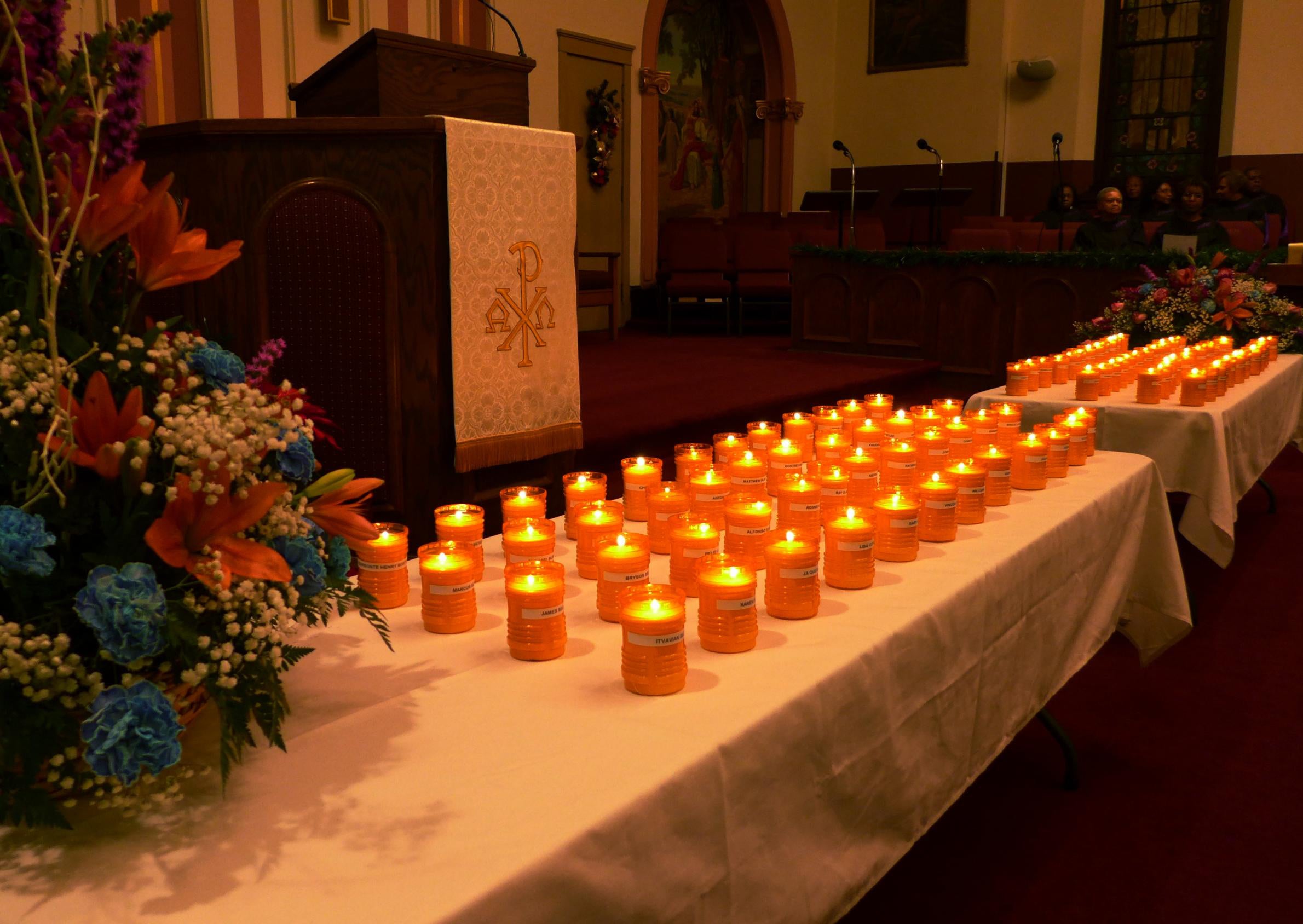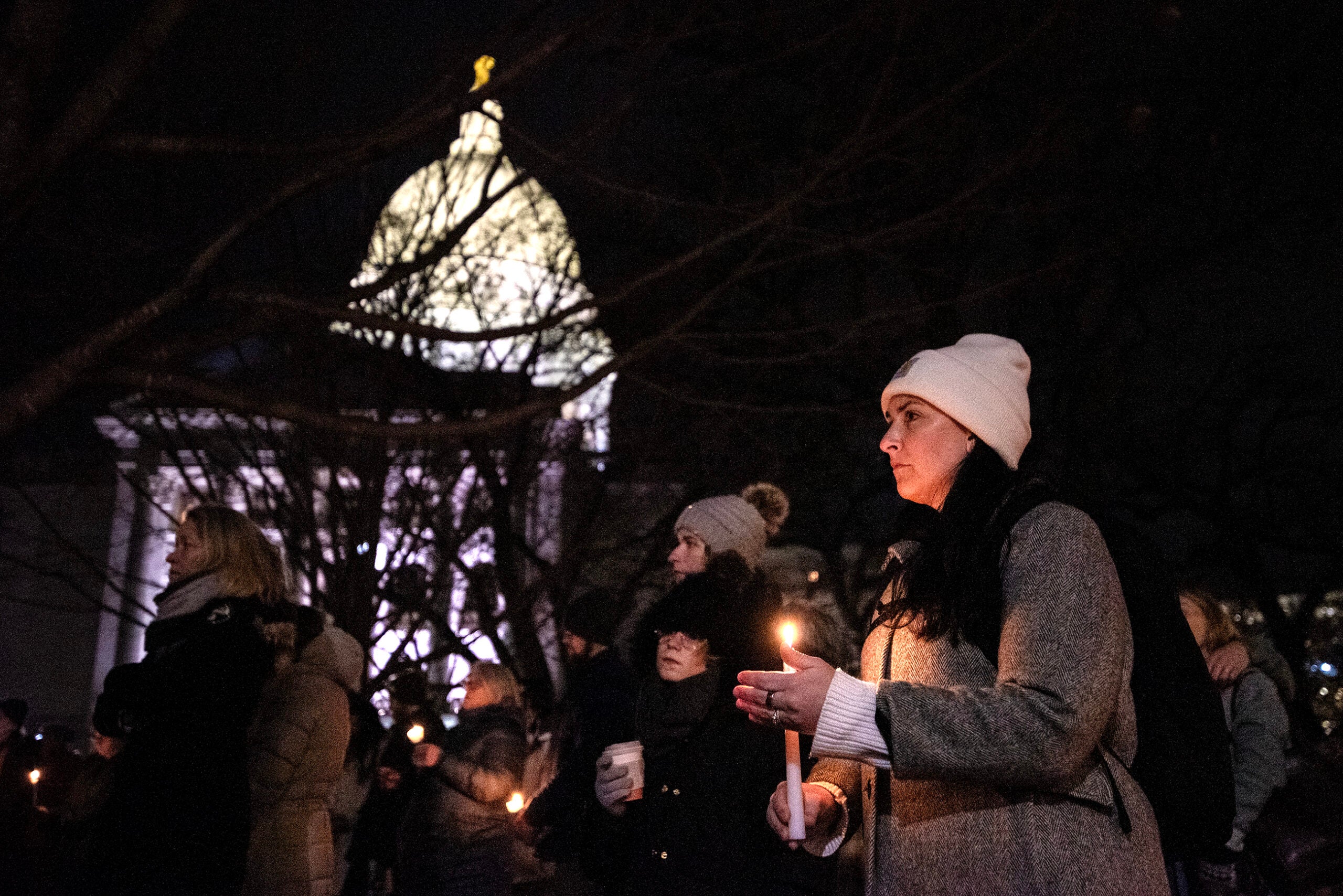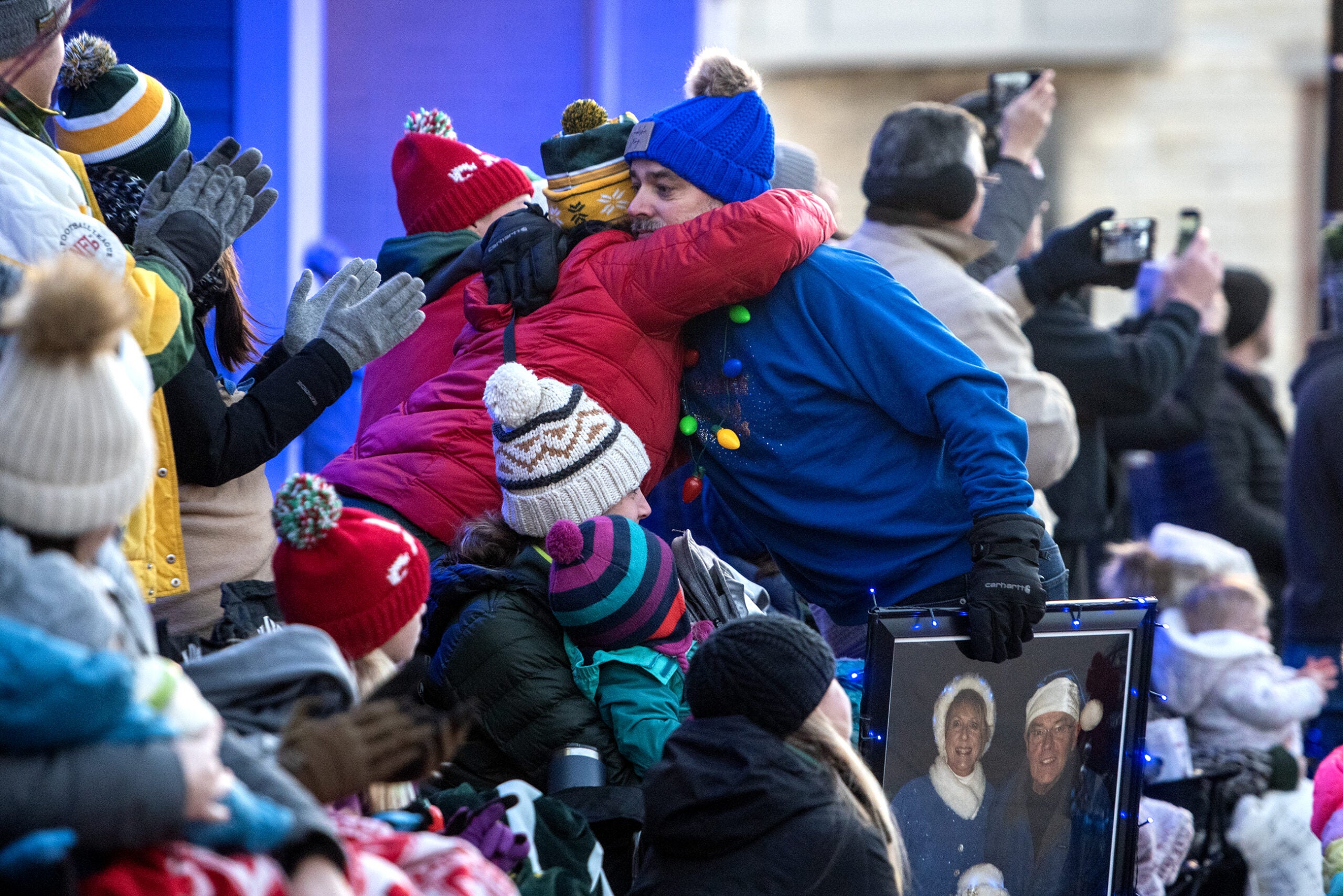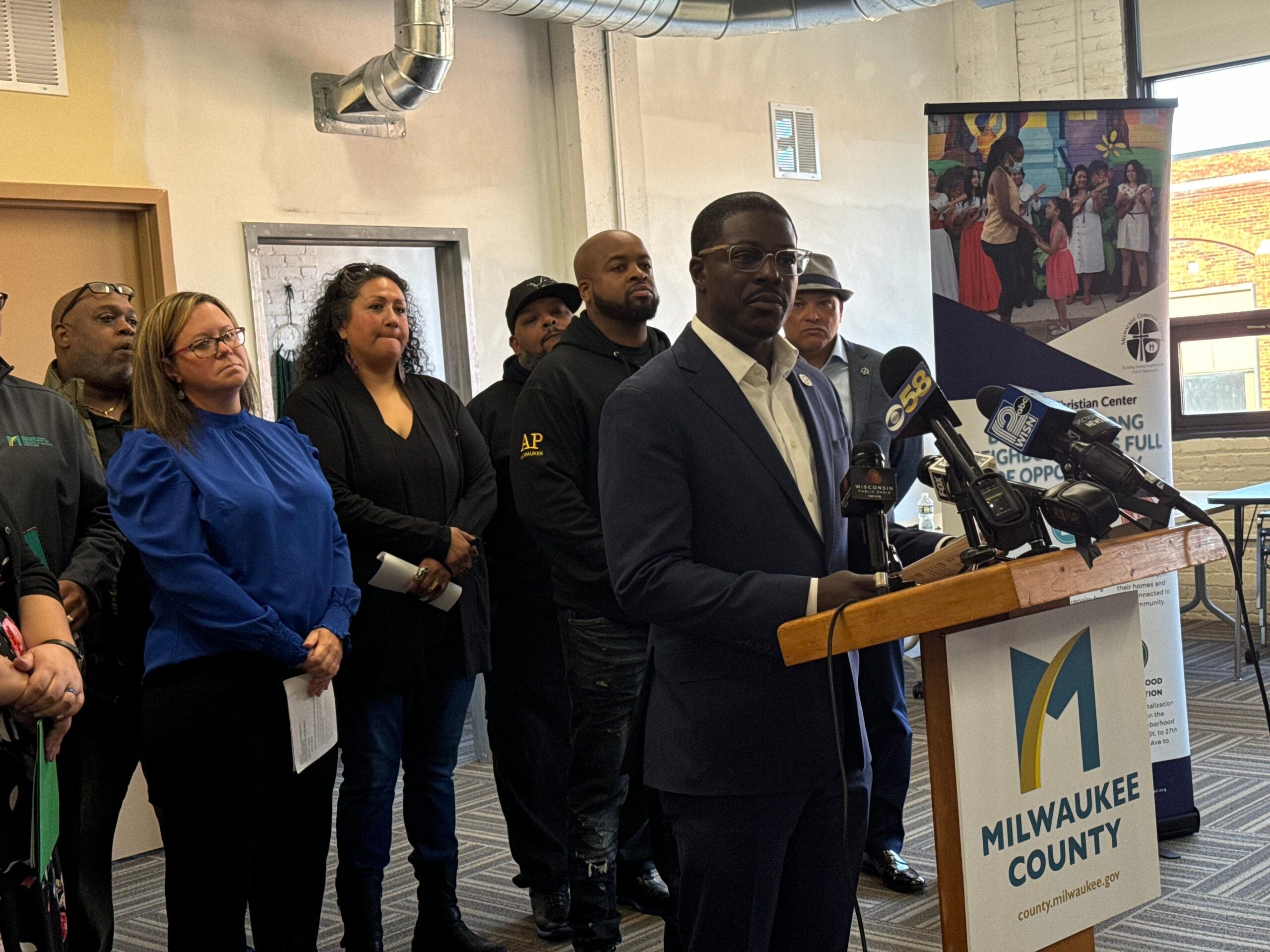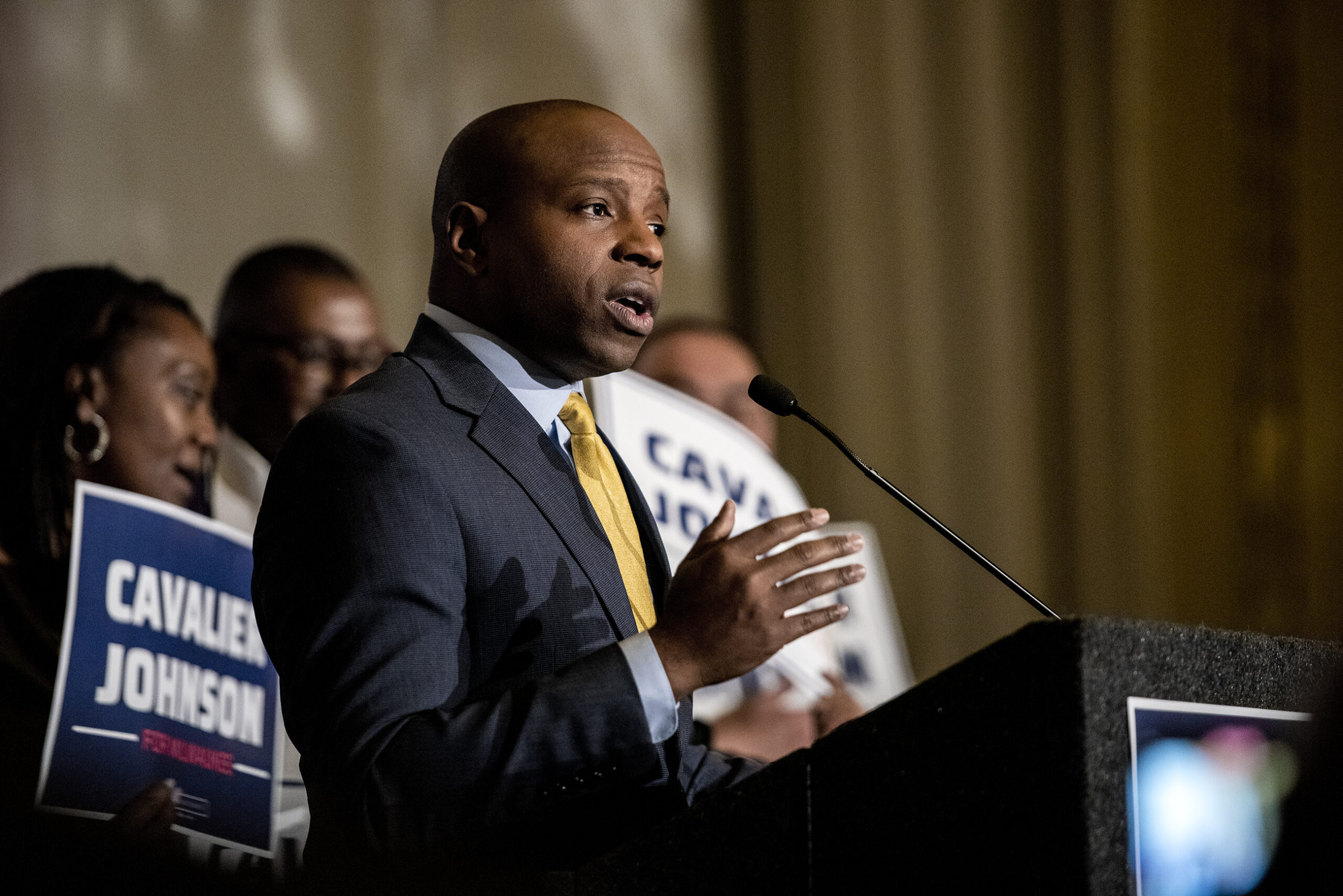Clergy and political leaders in Milwaukee gathered on Tuesday night to remember the nearly 90 homicide victims in the city this year.
Milwaukee church and community groups have been holding an annual candlelight vigil for homicide victims for more than 20 years. Many families of the victims attend the ceremony. Political leaders like Milwaukee Mayor Tom Barrett, Milwaukee County Sheriff David Clarke and U.S. Rep. Gwen Moore were also there to speak.
Moore said her 24 year-old nephew was killed 35 years ago, during a carjacking. She said each violent death creates an opportunity for those still alive “to grow stronger, to encourage ourselves to double down in our resolve to make sure this doesn’t happen again.”
Stay informed on the latest news
Sign up for WPR’s email newsletter.
A half-dozen pastors also spoke at the event. Reverend Leondis Fuller lost three sons to gun violence between 1993 and 2002. He said he has recovered physically, mentally and spiritually. He urged relatives of this year’s victims to become active in the community.
“This night is not just a night to mark the death of our loved ones. It is a night to come to commit that we will make difference,” he said.
Reverend Fuller is one of about a dozen African-American pastors that held a news conference before the vigil. The clergy members announced an adopt-a-block program, in which they and others promise to get to know everyone on a block in hopes of reducing violence. Fuller said the fatal shootings of three Milwaukee kids age 10 and under this year have given the effort extra urgency.
“The younger these babies get, the more angry the community is getting,” said Fuller. “We’re getting fed up and I think that us coming together like this and doing it more often, we can see some changes.”
According to Milwaukee’s Homicide Review Commission, the number of fatal shootings is down a little in the city this year, but nonfatal shootings are up nearly 10 percent.
Wisconsin Public Radio, © Copyright 2025, Board of Regents of the University of Wisconsin System and Wisconsin Educational Communications Board.
